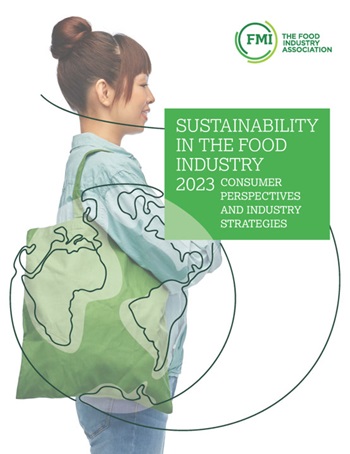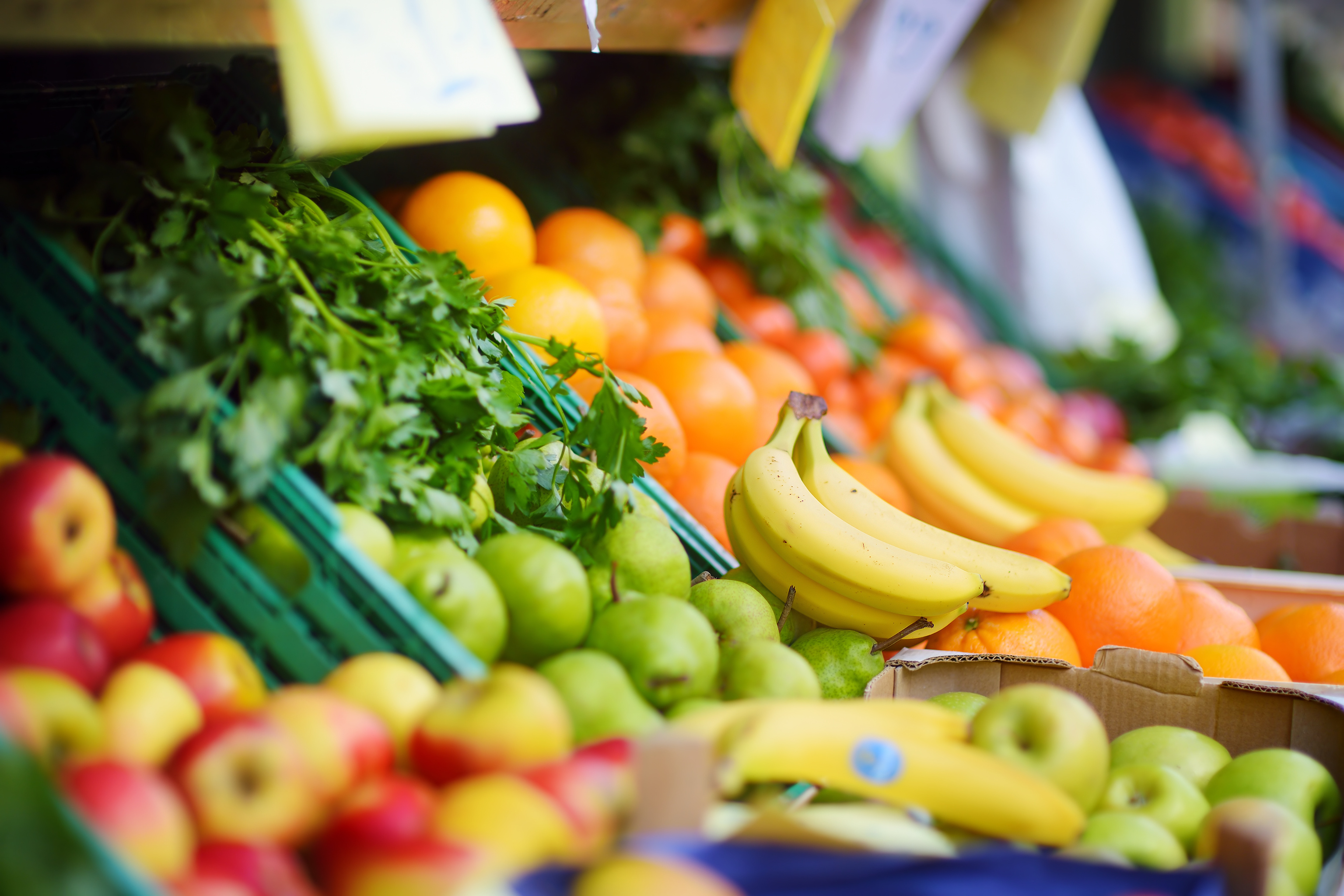
By: Andy Harig, Vice President, Tax, Trade, Sustainability & Policy Development, FMI
Despite relatively high inflation and overall economic uncertainty, sustainability remains consistent as an important factor influencing shopper decisions.
Consumers most likely to be interested in sustainability are highly desirable shoppers for the food industry, as they spend more on groceries online and overall. This industry is making progress with a range of sustainability strategies.
A new sustainability report available for download covers this topic based on the latest insights from FMI's research. The Power of Sustainability in the Food Industry illuminates shopper perspectives and industry strategies and commitments. The sections in this report were initially published as part of an FMI blog series about sustainability.
Food industry leaders can pursue action steps to drive even more sustainability progress in 2024 and beyond. Here are some key steps for progress:
- Track Shopper Perspectives: The industry needs to track the evolving sustainability perspectives of consumers. FMI research cited in the report found that more than 30% of shoppers say recycling/sustainability efforts and practices are among the most important attributes in their choice of a primary store. FMI will continue to track these types of consumer perspectives.
- Choose Sustainability Initiatives: The new report presents benchmarks on the industry's overall quantified goals and implementation time frames for a range of efforts — including food waste reduction, energy use reduction, package waste reduction and responsible sourcing. Food industry companies vary in terms of how much effort they put into each sustainability strategy. Each company needs to decide on its own priorities.
- Communicate Actions: Companies are more likely to succeed if they not only embrace sustainability practices, but also clearly communicate their actions to consumers and other stakeholders.
- Leverage Key Resources: Food industry companies can take advantage of sustainability resources from FMI and other organizations. As a case in point, FMI's Sustainable Packaging Assessment Guide assists retailers and their suppliers in advancing efficient design, responsible sourcing, and circular systems for packaging.
- Embrace Partnerships: Sustainability is a complex journey, and it is helpful to develop partnerships that drive progress. Companies can boost success by working on sustainability with trading partners, associations, and other stakeholders. The FMI report includes information on several sustainability-focused organizations that partner with FMI and the food industry.
I hope you'll download the new sustainability report and make use of it in your planning strategies. There's so much progress we can make individually as companies and collectively as an industry on this highly important topic.


 Industry Topics address your specific area of expertise with resources, reports, events and more.
Industry Topics address your specific area of expertise with resources, reports, events and more.
 Our Research covers consumer behavior and retail operation benchmarks so you can make informed business decisions.
Our Research covers consumer behavior and retail operation benchmarks so you can make informed business decisions.
 Events and Education including online and in-person help you advance your food retail career.
Events and Education including online and in-person help you advance your food retail career.
 Food Safety training, resources and guidance that help you create a company food safety culture.
Food Safety training, resources and guidance that help you create a company food safety culture.
 Government Affairs work — federal and state — on the latest food industry policy, regulatory and legislative issues.
Government Affairs work — federal and state — on the latest food industry policy, regulatory and legislative issues.
 Get Involved. From industry awards to newsletters and committees, these resources help you take advantage of your membership.
Get Involved. From industry awards to newsletters and committees, these resources help you take advantage of your membership.
 Best practices, guidance documents, infographics, signage and more for the food industry on the COVID-19 pandemic.
Best practices, guidance documents, infographics, signage and more for the food industry on the COVID-19 pandemic.
